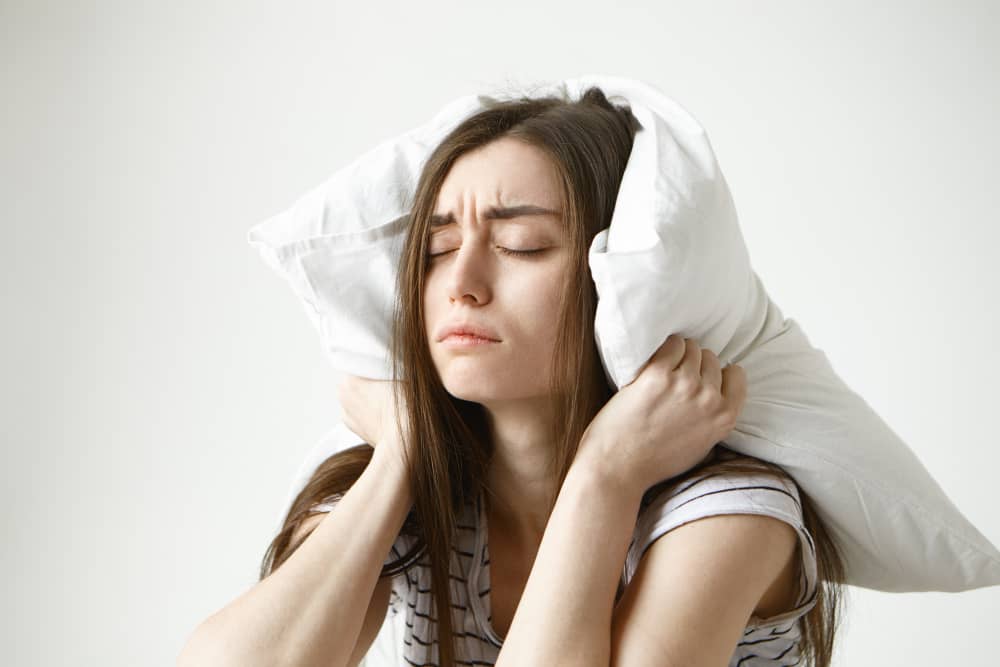
Do you wake up feeling exhausted after sleeping the whole night? Does your partner complain that you snore all night or occasionally pause breathing during sleep? If this is the case, you may be suffering from sleep apnea near you—a preventable but curable disorder that cuts off your airflow during sleep.
Sleep apnea can lead to health problems if left untreated. Many people don’t even realize they have it. That’s why knowing the signs is so important. In this blog, we’ll go over seven common warning signs you should not ignore.
What Is Sleep Apnea?
Sleep apnea is a disorder where your breathing stops and starts repeatedly while you’re asleep. These pauses can last for a few seconds or even longer, and they often happen without you noticing. There are different types of sleep apnea, but the most common is obstructive sleep apnea, which happens when the muscles in your throat relax too much and block your airway.
Sleep apnea can happen to anyone—men, women, even children—but it’s most common in adults, especially those who are overweight or have other health problems.
Why You Shouldn’t Ignore the Signs
If left untreated, sleep apnea can lead to high blood pressure, heart disease, stroke, diabetes, and daytime fatigue that affects your work and personal life. That’s why it’s so important to talk to a dentist in Mississauga or a healthcare provider if you think you may have it. Dentists can help detect signs of sleep apnea during routine checkups and may offer treatment options such as oral appliances.
Now let’s take a closer look at the symptoms.
1. Loud Snoring
Snoring isn’t always a sign of sleep apnea, but if it’s loud and happens most nights, it could be a warning. Snoring occurs when air can’t move freely through your nose and throat while you sleep. If the snoring is paired with gasping or choking sounds, it’s even more likely that sleep apnea is the cause.
2. Waking Up Gasping for Air
One of the more serious warning signs is waking up feeling like you can’t breathe or are choking. This happens because your body is suddenly trying to reopen your airway. If this happens often, it could mean your breathing is stopping multiple times throughout the night.
3. Daytime Sleepiness
Do you find yourself falling asleep during meetings, while watching TV, or even while driving? People with sleep apnea often don’t get deep, restful sleep, so they feel tired and sluggish during the day. If you’re always feeling exhausted despite getting enough hours of sleep, that’s a red flag.
4. Morning Headaches
Breathing problems during sleep can reduce oxygen levels in your blood. This can cause headaches when you wake up. If you’re regularly dealing with dull or pounding headaches in the morning, it could be related to disrupted breathing from sleep apnea.
5. Dry Mouth or Sore Throat
Many people with sleep apnea breathe through their mouth during the night. This can cause a dry mouth or sore throat in the morning. If this is something you experience regularly, it’s worth discussing with your dentist or doctor.
6. Trouble Focusing or Memory Issues
Sleep apnea doesn’t just affect your body—it affects your brain, too. Poor sleep can make it hard to concentrate, remember things, or stay focused. If you’ve noticed changes in how you think during the day, sleep apnea might be to blame.
7. Mood Changes and Irritability
A lack of good sleep can affect your mood and mental health. People with sleep apnea may feel depressed, anxious, or easily irritated. You may find yourself snapping at others or feeling stressed more often than usual.
Can Sleep Apnea Be Cured?
You might be wondering, can sleep apnea be cured? The answer depends on the cause and severity. For some, lifestyle changes like losing weight, sleeping on your side, or avoiding alcohol can help. Others may need treatments like CPAP machines or custom dental appliances made by a trained professional. In certain cases, surgery might be recommended.
While it might not always be “cured” completely, sleep apnea can be managed. Many people find big improvements with the right treatment.
What to Do If You Notice the Signs
If you’ve noticed one or more of these signs in yourself or a loved one, don’t wait. Talk to a dentist or sleep specialist as soon as possible. Getting diagnosed is the first step to feeling better and protecting your long-term health. You can ask your local provider about what are the warning signs of sleep apnea or what tests are available to confirm the condition.
Don’t Wait—Take the First Step Toward Better Sleep
Getting help for sleep apnea can improve your sleep, your energy, and your overall health. At IONA Dental, we care about your total well-being, not just your teeth. If you’re experiencing any of these signs, don’t ignore them. Book an appointment today and let our team help you sleep and feel better.
